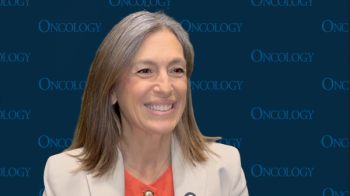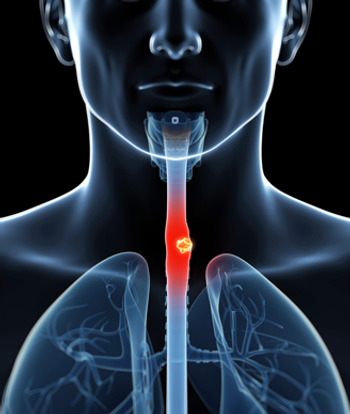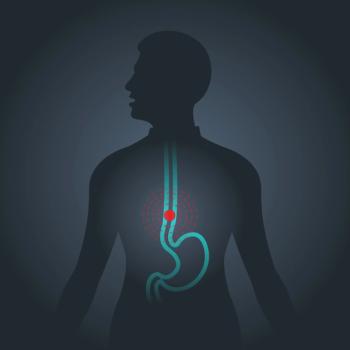
Oncology NEWS International
- Oncology NEWS International Vol 10 No 11
- Volume 10
- Issue 11
Gene Therapy Plus Radiotherapy Delays Esophageal Cancer Growth in Mice
WASHINGTON-Combining gene therapy with radiotherapy may provide a useful approach to combating human esophageal cancers, said Vinay Kumar Gupta, MD, of the University of Chicago Medical School, at the 54th Annual Cancer Symposium of the Society of Surgical Oncology.
WASHINGTONCombining gene therapy with radiotherapy may provide a useful approach to combating human esophageal cancers, said Vinay Kumar Gupta, MD, of the University of Chicago Medical School, at the 54th Annual Cancer Symposium of the Society of Surgical Oncology.
The experimental approach uses a recombinant adenovirus designed to express tumor necrosis factor-alpha (TNF-alpha) under the regulation of Egr-1, a promoter gene sensitive to ionizing radiation, Dr. Gupta said.
The researchers hypothesized that infecting a tumor with the adenovirus (Ad.Egr.TNF-alpha, produced by Gen-Vec, Gaithersburg, Md) and then exposing it to radiation would produce TNF-alpha, which, in turn, would slow down the tumor’s growth. In a sense, he said, tumors infected with the TNF-alpha-producing virus would contain "suicide genes."
To test their hypothesis, the researchers injected human esophageal adenocarcinoma into the legs of nude mice. After the tumors had grown to 250 mm², the mice were randomly assigned to four different treatments: injections of the recombinant virus followed by ionizing radiation to the tumor area; injections of the virus but no radiation; a viral buffer plus radiation; and viral buffer alone.
Tumors treated with the virus but not radiation did express TNF-alpha at low levels, Dr. Gupta reported, but the addition of radiation increased TNF-alpha levels by 36-fold. No TNF-alpha appeared in either of the groups that did not receive the virus.
Growth of the tumors treated with the combined therapy was significantly delayed, compared with the other three groups, with no added toxicity, Dr. Gupta said.
Although there is no solid proof that reducing the size of esophageal cancers increases patient survival, Dr. Gupta found these results particularly encouraging because, he said, the location of human esophageal cancer makes it treatable by injection.
Current treatments offer "very little to help these patients," he said. The use of radiation to activate the Egr-1 promoter within the adenovirus, however, "allows us to really control the effect of the therapeutic gene that expresses TNF-alpha," he said. Indeed, he commented, the new technique potentially allows turning on tumor necrosis factor "almost like a faucet."
Articles in this issue
over 24 years ago
Two Large AIDS Studies Will Increase Enrollments 60%over 24 years ago
Platinum-Based Regimens Are Favored in Advanced NSCLCover 24 years ago
Radiofrequency Ablation Proving Effective in Small Renal Cell Tumorsover 24 years ago
Templates Used to Document Chemotherapyover 24 years ago
Grade Dictates Treatment of Primary NHL of the Breastover 24 years ago
Low Arsenic Levels in Drinking Water Increase Cancer Riskover 24 years ago
Astatine-211-Labeled MoAB Promising in Brain Cancer Patientsover 24 years ago
GEMOX Active With Low Toxicity in Pancreatic Cancerover 24 years ago
Legislation Urged to Revitalize the National Cancer Planover 24 years ago
Cisplatin/Gemcitabine/Herceptin Encouraging in NSCLCNewsletter
Stay up to date on recent advances in the multidisciplinary approach to cancer.



































